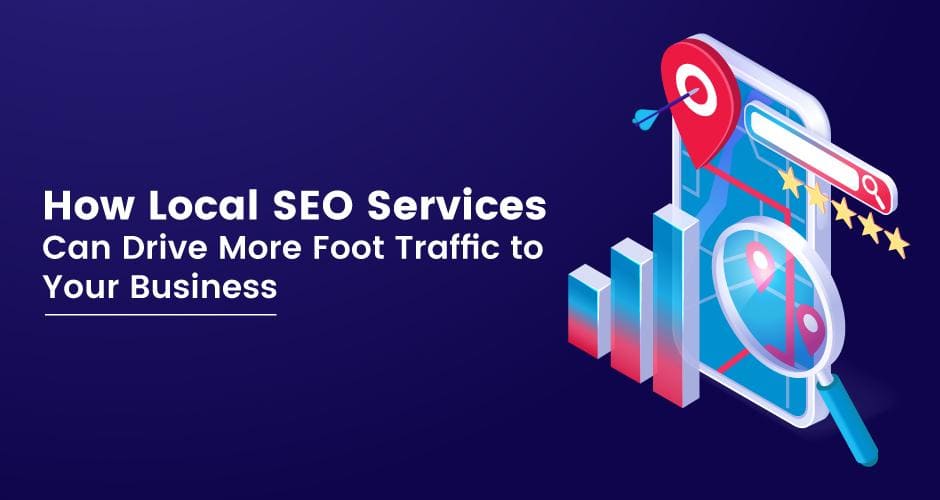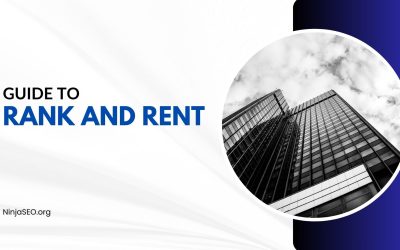Imagine the power of your business reaching the right audience, exactly when they need you. That’s the magic of Local SEO. In Zimbabwe, this strategy can transform the visibility of your local business, putting you at the forefront when your community searches for the services or products you offer.
Local SEO Zimbabwe delves into the essential techniques and benefits that can help you outshine competitors in your area, making sure your business isn’t just part of the market, but a leader in it. Have you ever wondered how businesses attract local customers using the power of the Internet?
In today’s digital age, local search engine optimization (SEO) is becoming increasingly important for businesses to thrive, especially in specific regions like Zimbabwe.

Understanding Local SEO
What is Local SEO?
Local SEO is a strategy that helps businesses become more visible in local search results on Google. It’s vital for local businesses trying to attract nearby customers or clients. When someone searches for a service or product you offer, wouldn’t you want your business to appear as one of the top results?
Why Local SEO Matters in Zimbabwe
In Zimbabwe, a significant amount of the population uses the internet to find local businesses. With the rise of smartphones and internet connectivity, more people are turning to Google to find what they need. If your business isn’t visible online, you’re missing out on a sizable chunk of potential customers.
Key Components of Local SEO
Google My Business (GMB)
Google My Business is a free tool that allows you to promote your business on Google Search and Maps. By optimizing your GMB profile, you can significantly increase your chances of appearing in local searches.
Setting Up GMB
- Sign Up: Go to Google My Business and click “Start Now.”
- Enter Business Details: Fill in your business name, address, service area, and contact details.
- Verify Your Business: Google will send you a postcard with a verification code—use it to verify your listing.
- Optimize Your Profile: Add photos, business hours, and a compelling description of your business.
On-Page SEO
On-page SEO involves optimizing the content and layout of your website to make it more search engine friendly. This includes:
- Title Tags: Informative and keyword-rich titles.
- Meta Descriptions: Concise summaries of your webpage content.
- Header Tags: Using H1, H2, H3 tags to structure your content.
- Local Keywords: Integrating local keywords relevant to your business. For instance, use phrases like “best coffee shop in Harare” instead of just “best coffee shop.”
Local Citations
Local citations are mentions of your business on other websites and directories, such as Yelp or TripAdvisor. They typically include your business name, address, and phone number (NAP).
Building Local Citations
- Business Directories: Submit your business to local and international directories.
- Consistency is Key: Ensure that your NAP information is consistent across all platforms.
- Local Media: Get featured in local blogs, newspapers, and magazines.
Reviews
Online reviews can significantly influence local search rankings. Google considers the number and quality of reviews when ranking businesses.
Encouraging Reviews
- Ask for Reviews: Politely ask satisfied customers to leave a review.
- Respond to Reviews: Engage with both positive and negative reviews.
- Use Review Widgets: Integrate review widgets on your website to make it easy for customers to leave reviews.
Backlinks
Backlinks from reputable local websites can greatly enhance your SEO efforts. They signal to search engines that your site is credible and authoritative.
Building Local Backlinks
- Community Involvement: Sponsor local events or charities and get mentioned on their websites.
- Local Partnerships: Partner with other local businesses and ask for reciprocal links.
- Content Creation: Create valuable content that local websites will want to link to.
Tools for Local SEO
Keyword Research Tools
Keyword research tools help you find the terms people are searching for in your area. Some popular tools include:
| Tool | Description |
|---|---|
| Google Keyword Planner | Free tool to find keywords related to your business. |
| SEMrush | Offers insightful data on keyword performance and difficulty. |
| Ahrefs | Comprehensive tool for keyword research and backlink analysis. |
Analytics Tools
Tracking your SEO performance is crucial for making informed decisions. Some useful analytics tools are:
| Tool | Description |
|---|---|
| Google Analytics | Provides detailed reports on your website’s traffic and performance. |
| Google Search Console | Monitors your website’s presence in Google search results. |
| Moz | Offers insights into keyword rankings and site performance. |
Common Local SEO Mistakes to Avoid
Ignoring Mobile Optimization
In Zimbabwe, many people access the internet through mobile devices. A mobile-friendly website is a must.
Tips for Mobile Optimization
- Responsive Design: Ensure your website displays well on all devices.
- Fast Load Times: Optimize images and compress files to improve load times.
- Easy Navigation: Make sure your website is easy to navigate on a smaller screen.
Not Using Local Keywords
General keywords are too broad. Focus on local keywords that are specific to your area to attract the right audience.
Inconsistent NAP Information
Consistency in your Name, Address, and Phone number (NAP) across all platforms is crucial. Inconsistent information can confuse customers and search engines alike.
Forgetting to Optimize Google My Business
Your GMB profile is often the first impression customers have of your business. An incomplete or unoptimized profile can turn potential customers away.
Not Tracking Results
How can you improve if you don’t know what’s working? Regularly monitor your local SEO efforts to gauge their effectiveness.

Strategies for Local SEO Success
Content Marketing
Content is king, even in local SEO. Create content that speaks to your local audience.
Types of Local Content
- Local News: Write blog posts about local events or news relevant to your industry.
- Customer Stories: Share testimonials from local customers.
- Local Guides: Create guides that highlight the best places or aspects of your area related to your business.
Social Media
Social media platforms can be powerful tools for local SEO. They help you connect with local customers and build community engagement.
Leveraging Social Media
- Local Hashtags: Use local hashtags to increase your visibility.
- Engage with the Community: Interact with local influencers and customers.
- Share Local Content: Share content that highlights your business in the community.
Email Marketing
Email marketing remains one of the most effective ways to engage with customers. Personalized and location-based email campaigns can produce remarkable results.
Email Campaign Tips
- Segmentation: Segment your email list by location to send targeted emails.
- Local Offers: Promote special offers or events happening in your area.
- Follow-Up Emails: Send follow-up emails after local events or promotions to keep customers engaged.
Collaborations
Collaborating with other local businesses can be mutually beneficial and enhance your local SEO efforts.
Effective Collaborations
- Joint Promotions: Run joint promotions or discounts with neighboring businesses.
- Community Events: Participate in or sponsor local events.
- Content Sharing: Share each other’s content on social media or blogs.
Case Study: Success in Zimbabwe
The Journey of “Harare Café”
“Harare Café,” a small coffee shop, started implementing local SEO strategies six months ago. Before that, they relied mainly on word-of-mouth marketing. After optimizing their Google My Business profile, focusing on local keywords, and engaging with customers online, their foot traffic increased by 40%.
Key Takeaways
- GMB Optimization: Their fully optimized Google My Business profile played a crucial role.
- Local Content: Blog posts about local coffee culture attracted more local customers.
- Engagement: Active engagement on social media built a loyal local customer base.

The Future of Local SEO in Zimbabwe
Increased Internet Penetration
As internet penetration in Zimbabwe continues to grow, so will the opportunities for local businesses to reach online consumers.
Voice Search
With the rise of smart speakers and voice-activated assistants, optimizing for voice search will become increasingly important for local SEO.
Optimizing for Voice Search
- Conversational Keywords: Use more natural, conversational phrases.
- FAQ Sections: Include FAQ sections on your website to capture long-tail keywords.
- Mobile Optimization: Ensure your site is mobile-friendly, as many voice searches are conducted on mobile devices.
Personalization
As search engines get better at understanding user intent, personalized search results will become the norm. This makes it even more crucial to focus on specific local SEO strategies that cater to your immediate community.
Action Plan for Local SEO Zimbabwe
Step 1: Audit Your Current Local SEO Strategy
Perform a comprehensive audit to identify gaps in your current strategy. Use tools like Google Analytics and Moz to review your website’s performance.
Step 2: Optimize Google My Business
Make sure your GMB profile is complete and up-to-date. Regularly update photos, respond to reviews, and post updates to keep your profile active.
Step 3: Focus on Local Keywords
Conduct keyword research to find local terms related to your business. Incorporate these keywords naturally into your website content.
Step 4: Build Local Citations
Submit your business to local directories and ensure your NAP information is consistent across all platforms.
Step 5: Encourage Reviews
Develop a strategy to encourage satisfied customers to leave reviews on Google and other review platforms.
Step 6: Create Local Content
Regularly update your blog with content relevant to your local audience. This could include local news, customer stories, and guides.
Step 7: Engage on Social Media
Use social media to connect with your local audience. Share local content, engage with followers, and use local hashtags to increase visibility.
Step 8: Track and Adjust
Regularly track your local SEO efforts and make adjustments as needed. Use analytics tools to understand what’s working and what needs improvement.

Conclusion
Local SEO is essential for businesses in Zimbabwe looking to attract local customers. By understanding its components—like Google My Business, on-page SEO, and local citations—you can develop a strategy that makes your business more visible.
Engage with your community through reviews, social media, and local content, and you’ll see your business thrive. So, are you ready to start leveraging local SEO to grow your business in Zimbabwe?









